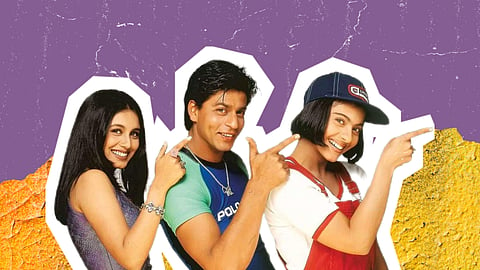
- HOMEGROWN WORLD
- #HGCREATORS
- #HGEXPLORE
- #HGVOICES
- #HGSHOP
- CAREERS
- ABOUT US
- CONTACT US

Ah, the infamous "friend zone" – that elusive realm where unrequited love goes to lick its wounds and bitter souls console themselves with the notion that their affections are unjustly withheld. It's like a self-imposed purgatory for bruised egos, a place where entitlement and emotional investment collide in a cringe-worthy dance.
The so-called "friend zone" can sometimes feel like a twilight zone devoid of genuine friendship, haunted instead by bitterness and an awkward anticipation of a romantic ransom. Unrequited love, that emotional punch in the gut, typically calls for some breathing space to mend wounds. Yet, the friend zone operates like a sticky web, ensnaring both parties in a tangle of expectations and obligatory gestures; It's the Bermuda Triangle of relationships — no one escapes unscathed.
The term was first popularized in a 1994 episode of Friends where the character Ross Geller, who was lovesick for Rachel Green, was described by character Joey Tribbiani as the "mayor of the friend zone". Who would have thought that a show dedicated to friendship would inadvertently iconize a concept that demeans it? Feminist writers Rivu Dasgupta and Amanda Marcotte label it as a male narcissist's dreamland. The idea that a woman owes a romantic favor in return for a guy's friendship reeks of entitlement and reinforces outdated gender norms.
Michael Kimmel, Professor of Sociology and Gender Studies at Stony Brook University and the guru of all things masculinity, hits the nail on the head when he likens the "friend zone" to a theatrical performance of masculinity. It's like a script where guys act out the role of a wounded lover because dealing with rejection is just too complicated. So, instead of owning up to their emotions and moving on, they slap on the "friend zone" label and pretend they're the victims of a cosmic conspiracy.
And let's not forget the 'nice guy' trope, that sneaky underbelly of the friend zone myth that insinuates that kindness should be rewarded with a romantic or sexual payoff. But how 'nice' are you really if your entire behaviour was manufactured to beget a certain outcome? A woman is not a vending machine where you insert niceness until sex and affection falls out.
Romantic relationships, touted as the pinnacle of emotional fulfillment, can be more elusive and transient than we're led to believe. Society frames friendship between the sexes as a stepping stone towards romantic relationships when contrastingly, we so often seek friendship after a heartbreak and in reality, romantic relationships are rarely as reliable and long-lasting as the bond of friendship. The prevailing landscape of our times is marked by the intricate interplay of systemic factors. Hyper-sexualization, like an overexposed spotlight, elevates physical intimacy while relegating the sanctity of friendship to the shadows.
So, let's all take a collective deep breath, be honest with our intentions in our relationships with others and stop thinking of friendship as a demotion. It's high time we recognize that friendships between men and women are rich, rewarding connections that don't need romantic strings attached. Let's break free from the myth that diminishes the beauty of platonic relationships and stop expecting a romantic pot of gold at the end of the friendship rainbow. After all, real friendships aren't about rewards; they're about sharing laughter, support, and a bond that's deliciously free from ulterior motives.
If you enjoyed reading this, here's more from Homegrown:
Depth Over Distance: An Ode To Friendships That Stand The Test Of Time
Anoushka Maskey & Cosmic Grooves New Bossa Nova Single Captures The Heartbreak Of Friendship
Homegrown Photoseries ‘Sakhi’ Poetically Interprets The Beauty Of Female Friendships
